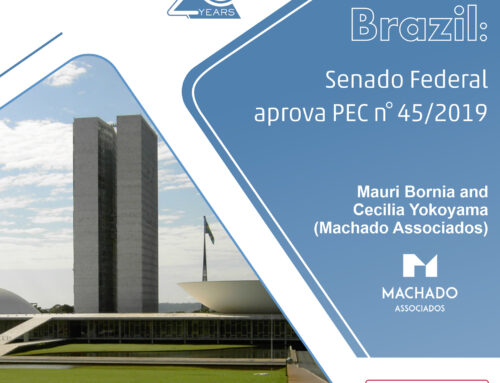The State of São Paulo Administrative Tax Court decision issues clarity for streaming services providers
Carolina Romanini Miguel, Gabriel Caldiron Rezende and Júlia Katzer Tadros Mathiazzi of Machado Associados discuss how a recent decision by the State of São Paulo Administrative Tax Court has provided much-needed clarity for OTT service providers.
An extremely important decision has been rendered by the State of São Paulo Administrative Tax Court on the state VAT (ICMS) levied on communication services. According to this decision, rendered in the Administrative Proceeding 4096546-6, streaming services are not subject to the ICMS.
The ICMS is a value-added tax levied on, among other transactions, the provision of communication services. Nevertheless, the ICMS law usually does not provide a clear definition of “communication services” for tax levy purposes, especially regarding the technological advances and new services offered.
In the case at hand, a tax assessment was issued by the State of São Paulo against the taxpayer to charge the ICMS levied on streaming services, as the tax authorities understood that they typify communication services. The taxpayer challenged the tax assessment, and the Administrative Court upheld its arguments, sustaining that streaming services cannot be considered as communication services and, therefore, are not subject to the ICMS.
To decide for the cancellation of the tax assessment, the Administrative Court evaluated the concept of communication services under the Brazilian Telecommunication Services Law (Law 9472/1997). Pursuant to the said law, telecommunication services are the transmission, emission or reception, through wires, radio electricity, optical means or any other electromagnetic process of symbols, characters, signs, writings, images, sounds or information of any kind which, in the courts’ view, do not fit into the description of streaming services.
According to the Administrative Court, services that consist on the provision of on-demand videos through the internet’s structure, the so-called “over-the-top” transmission (OTT), can only make the videos available, and the customer must use the internet to access such videos. Therefore, according the court’s
decision, the communication services are provided by the internet company – that connects the videos available in the streaming platform and the customer – and not by the streaming service provider.
Also, the court pointed out that streaming services consist of “value-added” services, meaning that they do not have the legal nature of communication services, although they improve them.
Finally, the decision rendered by the Administrative Court considered that the Supplementary Law 116/2006 lists, as a service subject to the municipal service tax (ISS), the streaming, described as the provision, without permanent transfer, of audio, video, image and text data through the internet, respected the immunity of books and newspaper (except the distribution of content through the conditional access’ service provider).
It is worth noting that the inclusion of streaming services in the list attached to the Supplementary Law as subject to the ISS came only in 2015, while the tax triggering events discussed in the case at hand occurred between 2013 and 2014. Nevertheless, this legal provision confirms that streaming has never been classified as a communication service and, therefore, taxed by ICMS, as this type of services cannot be subject to the ISS, but rather to the ICMS.
In view of the above, the Administrative Court concluded that, since streaming services are not considered as “communication services”, but a service taxed by the ISS, they are not subject to the levy of the ICMS.
This is a very important decision because it grants more clarity to streaming services providers which were, at one hand, afraid of ICMS charges from the state government, and on the other hand, legally obliged to pay the ISS.
This article was first published by International Tax Review in April 2020
(https://www.internationaltaxreview.com/article/b1l3zhyqfqszm8/the-state-of-s227o-paulo-administrative-tax-court-decisionissues-clarity-for-streaming-services-providers)





